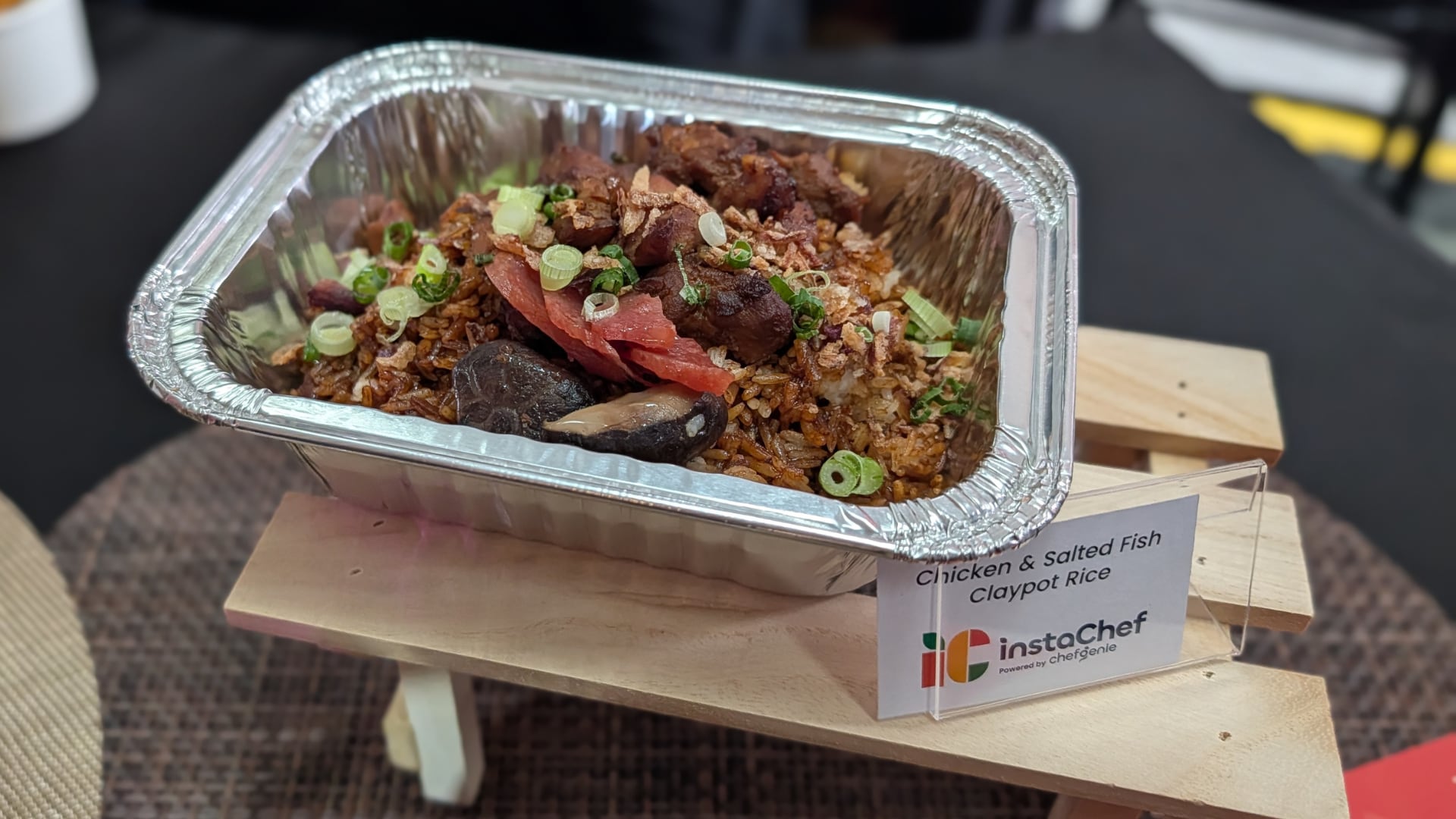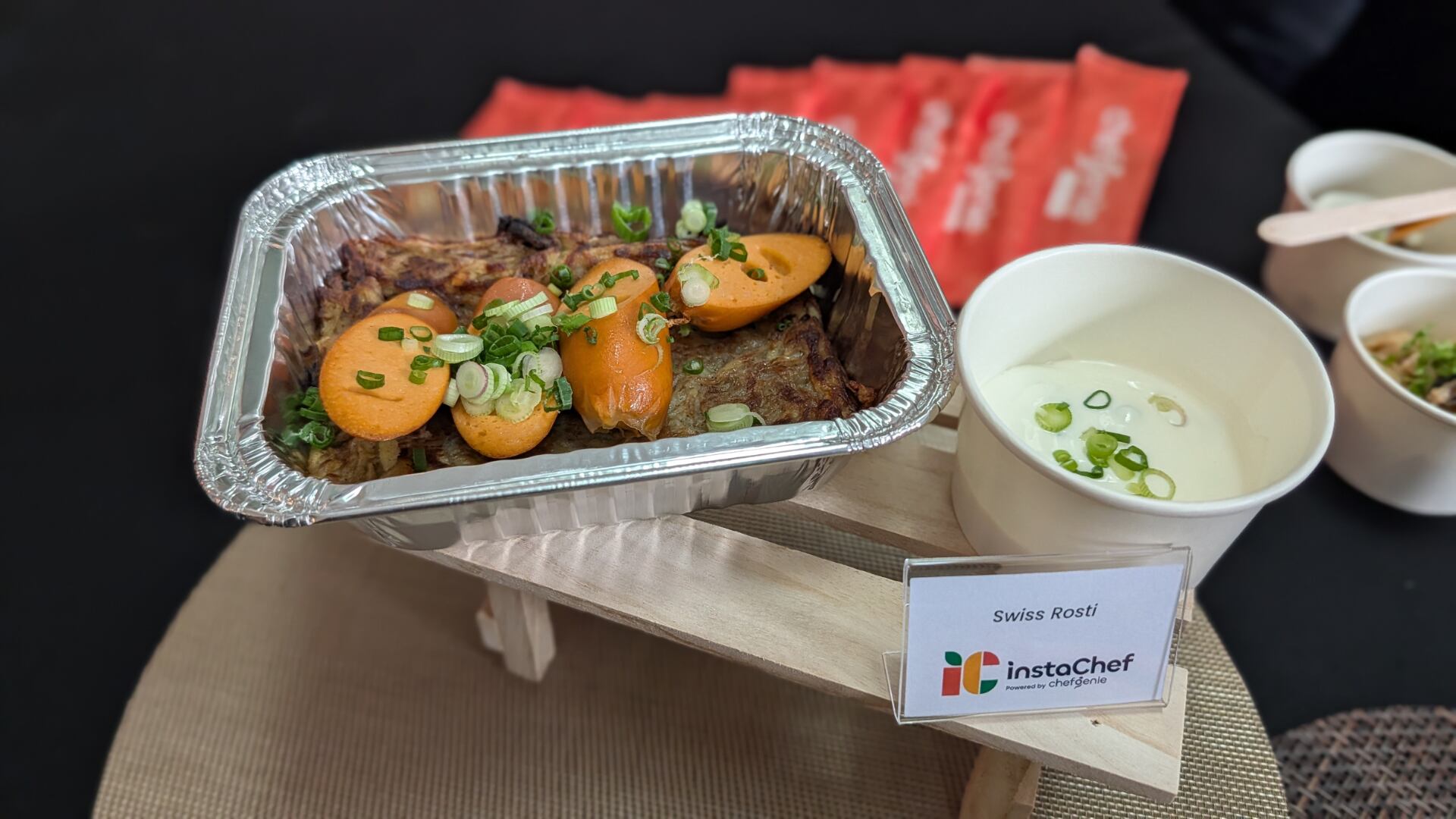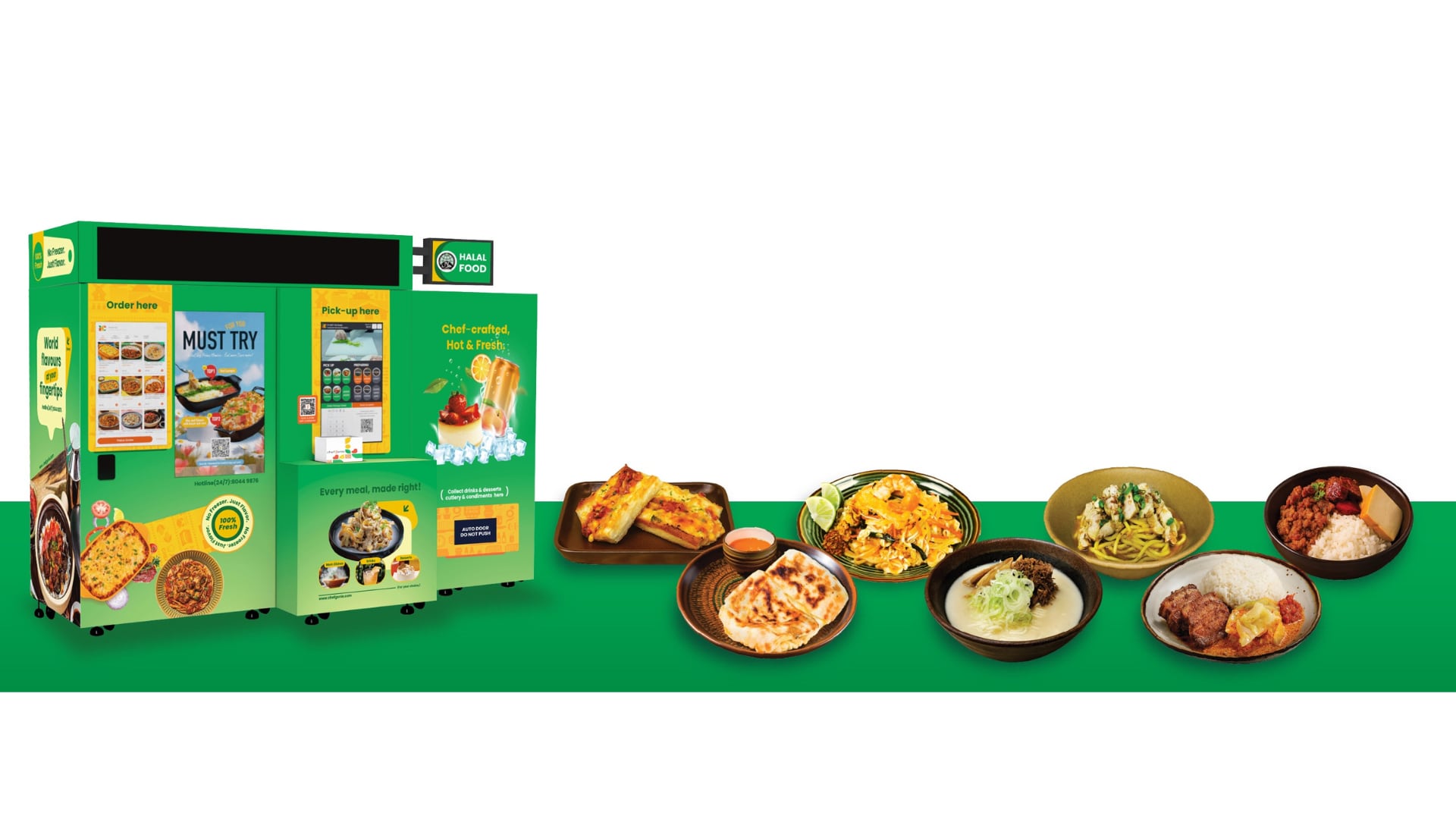ChefGenie, Singapore’s first AI-powered integrated vending kitchen, launched a six-month pilot trial within the country in September.
The firm’s innovation reflects Singapore’s growing food-tech and automation movement, where AI solutions are being tested to improve sustainability and operational resilience.
There are currently 120 of such machines across Singapore, providing freshly cooked meals in schools, commercial hubs, and residential areas.
The machines can cook various cuisines on the spot – such as roti prata, laksa, Japanese ramen and claypot chicken rice – and dispense an RTE meal after a four- to eight-minute wait from the time of ordering.
Aikit, the company behind ChefGenie, aims to alleviate manpower constraints and lower operational costs for food businesses that lack resources to set up physical stores.
More importantly, this innovation aims to empower, not replace humans, in the food sector.

AI-powered, human-led
Aikit’s solutions are scalable, with humans central to running the system, said Vice President of Business and Operations Sky Goh.
“Human chefs remain the soul of the food, our technology is not here to replace them, but to prolong their craft and extend their reach. The smart kitchen takes care of the repetitive, technical execution by cooking with precision, consistency, and efficiency, all while the creativity, flavours, and stories continue to come from the chefs. Our platform is designed for them,” Goh told FoodNavigator.
He explained that Aikit’s proprietary smart cooking technology enables the vending machine to cook a diverse range of complex dishes that require different cooking methods and appropriate heat control.
“Chefs can programme their recipes step by step into the system, ensuring their unique flavours and consistency are preserved dish after dish. This allows them to spend less time on day-to-day operations and more time on innovation, new creations, and building their brand,” Goh said.
“In that sense, the role of the chef does not even shrink, it grows. With AI-powered kitchens, chefs can scale their food beyond the four walls of a restaurant, making their signature dishes available to more people, in more places, for longer.”
The pilot scale is supported by EnterpriseSG and features various brands – including MICHELIN Bib Gourmand Warong Pak Sapari, Shihlin Taiwan Street Snacks, Takagi Ramen, and The Hainan Story.
It addresses the gap of poor food quality and low customer engagement associated with RTE foods from vending machines, which tend to rely on microwaved frozen foods that consumers perceive as processed and lacking in flavour.

Perfecting taste with greater efficiency
ChefGenie foods, in comparison, can deliver the signature flavours and taste experience of each cuisine, such as a dish’s “wok hey” (breath of the wok – a term used to describe the smoky, slightly charred taste of Chinese stir-fries). This is according to Low Yen Ling – Senior Minister of State for Trade and Industry, and Culture, Community, and Youth – who graced the launch of ChefGenie’s pilot trial in September.
“Hor fun [a South East Asian dish of stir-fried kway teow] can neither be too wet nor dry – the amount of gravy has to be just right, and it needs to have wok hey. ChefGenie checks all these boxes in the blind taste tests,” said Senior Minister Low.
Beyond cooking, the firm’s AI capabilities also allow for demand forecasting, popular item suggestions, and real-time menu adjustments based on consumer trends.
“The AI continuously monitors sales patterns, ingredient performance, and shelf life at each location. This not only ensures meals are cooked and served at their best, but also helps us reduce wastage, optimise replenishment, and maximise efficiency. For F&B brands, that translates into higher profitability and more sustainable operations, without compromising on the authenticity or uniqueness of their food,” said Goh.
All of this is scalable across different regions.
Expansion plans
The pressures faced by Singapore’s F&B sector – from rising costs to labour shortages and growing demand for quality convenience – mirror challenges seen across Asia and globally.
“We see clear opportunities in Asia first, in markets such as Japan and Thailand where consumers are already familiar with food automation and vending culture. Beyond that, we believe cities in Europe and North America are also ready for solutions that combine quality with convenience,” said Goh.
Aikit’s innovation aims to benefit both consumers and food businesses.
“For diners, our promise is simple: restaurant-quality food, available 24/7, with the convenience of a smart kitchen. Whether it’s a comforting mee rebus, a crispy prata, or international favourites like lasagna or Mac & Cheese, they can enjoy food that’s freshly cooked on order, any time of the day,” said Goh.
“For F&B operators and brands, ChefGenie is a platform that gives them a new way to scale their business. Instead of being limited by manpower or rental costs, they can bring their signature dishes into more locations, while our AI ensures consistency, reduces wastage, and improves profitability.”
Each ChefGenie meal costs SGD4–8 (USD3–6), and the portions are similar to the serving sizes in each brand’s physical store.





